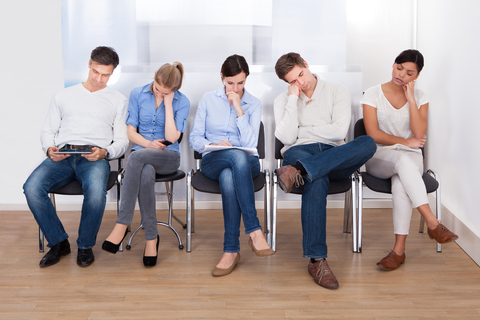
Medical science and medical professionals used to think that sleep apnea was a disorder that only affected older, obese men, but recent studies have proven that to be a misconception. Sleep apnea can affect anyone from age 2 to 102 and beyond, regardless of one’s sex or weight.
In a recent Swedish study, 400 adult women between the ages of 20 and 70 were monitored overnight for sleep apnea. The study defined the condition as having at least 5 episodes during an hour in which a person stopped breathing for ten seconds or longer. For a case to be considered severe, a person must stop breathing for at least ten seconds a minimum of 30 times per hour. The study found that half of the women had mild to severe sleep apnea.
Another significant finding was that among women who either had hypertension or were obese, 84% were found to have the disorder. Sleep apnea becomes more prevalent with age in both men and women, affecting about 25% of people over 65 regardless of weight, blood pressure or other potential contributing factors.
In the Swedish study, before the age of 44, 25% of women tested positive for apnea; between the ages of 45 and 54, 56% tested positive and among women between 55 and 70, 75% had the condition.
Women with sleep apnea are likely to voice different kinds of complaints than men do. The most frequent symptoms with men are feeling excessively sleepy during daytime hours, loud snoring and awakening with a sore throat or headache. Women, on the other hand, experience more chronic fatigue, depression and insomnia. Since these symptoms aren’t considered to be commonly associated with sleep apnea, women are frequently misdiagnosed.
Unlike some conditions that resolve themselves with time, sleep apnea actually gets worse, and one study found that women are at greater risk than men of developing dementia and memory problems.
These statistics are presented to point out how prevalent sleep apnea actually is—much more so than previously thought--and how diverse risk factors can be.
Ultimately, the only way to test for sure if you have sleep apnea is to have a sleep study--either a Home Sleep Test or an in-lab test--to see if you are experiencing apneas. If you are experiencing any of the symptoms noted above, see your doctor and contact us. We'll do definitive testing and get you back to feeling like yourself again.
Do you know any women suffering from sleep apnea? Are you surprised by these statistics? Comment and let us know what you think of this new study!
Related Posts: Sleep Apnea in Women, and Why It's Underdiagnosed



